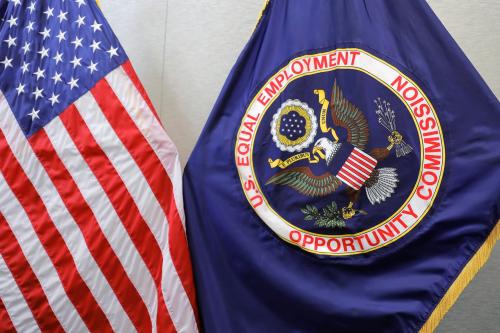Senator Max Baucus (D-Mont.) today announced a package of legislative proposals to address the economic challenges posed by the movement of U.S. service and manufacturing jobs overseas.
“We must do something,” said Baucus, a ranking member of the Senate’s Finance Committee. “Now that we’re losing service jobs, some wonder whether we have run out of rungs on the ladder. Where will the jobs of the future come from?”
The outsourcing of U.S. jobs is not a new phenomenon, and economists have largely accepted the trend as a logical extension of free trade. Until recently, the jobs affected were in the manufacturing sector, and it was assumed that well-educated Americans would retain their edge in “brain” industries. But technological advances, greater global political stability, and educational improvements around the world have allowed capital, technology, ideas, and services—the modern era’s factors of production—to move offshore with ease. This threatens what economists term “comparative advantage”—the notion that countries develop particular economic strengths and trade with other nations for goods they can’t efficiently produce themselves.
The issue of “offshoring” moved to the forefront of the national debate recently when President Bush’s chief economic adviser Greg Mankiw said that “outsourcing…is something that we should realize is probably a plus for the economy in the long run.” Mankiw’s comments upset many Americans who are struggling to find work and make ends meet.
Baucus said that the Bush administration was not doing enough to address these serious concerns.
“The Bush administration is wholly out of touch on these concerns,” Baucus said. “It offers no comprehensive approach to cope with the real fear that exists among working American men and women. They assure us—grimly—that offshoring is good for the economy, and that we should encourage—even accelerate—the movement of U.S. jobs overseas.”
Baucus said that quick and decisive action must be taken in order to create new jobs in the United States, retain existing ones, and retrain people to adjust to an evolving global economy. He called on Congress and the Bush administration to expand and make permanent the research and development tax credit, which Baucus said “has helped stimulate innovation and kept high-skill, high-wage jobs in the United States.” He also advocated increased federal spending on research and development in order to encourage new inventions and industries.
Baucus hoped that his proposals would help alleviate job anxieties and economic concerns in the short-term. At the same time, Baucus said American economic interests also require long-term thinking, including improved healthcare coverage and investment in education.
“We train only half as many engineers as Japan and Europe, and less than a third as many as China,” Baucus said. “Engineers play a critical role in the development of new jobs and new industries. America needs more engineers.”
Baucus also said that the Senate should pass the JOBS Act, which provides a tax cut for all companies manufacturing products in the United States, and to enforce trade agreements.
Following Baucus’ remarks, a panel of experts discussed various elements of outsourcing and its potential effect on the future of American—and global—prosperity.
“The reality is that what we’re seeing in the service sector is really just a logical continuation of what we’ve seen in manufacturing ,” said Brookings Senior Fellow Lael Brainard. William T. Dickens, a senior fellow at Brookings, agreed, saying that the United States was witnessing “evolutionary, not revolutionary change.”
What distinguished this particular economic phenomenon, according to Brainard, “is that this is a sector that has traditionally been seen as non-tradeable.”
Harris Miller, president of the Information Technology Association of America, said that much of the concert about outsourcing is due to the complacent attitude fostered by the economic boom enjoyed in the 1990s.
“We were so arrogant to believe that the software and service side of our sectors would stay,” Miller said, “and that smart people only lived in America. It was pure arrogance.”
Both Miller and Brainard felt that the scare over outsourcing was “overhyped,” and Economic Policy Institute Senior Economist Jared Bernstein said the effect was difficult to determine.
“I bet it would be a small share of jobs,” said Bernstein. He cited a Time magazine article that put the number of jobs lost as a result of outsourcing at less than 10 percent. “I think even that’s a bit high,” he said.
Brookings Senior Fellow E.J. Dionne, however, maintained that there was good reason to be concerned.
“I’m not sure it’s hyped,” Dionne said. “There are some questions that need to be answered?.Will most of the good new jobs be created somewhere other than here? Who benefits in the long run and who gets hurt in the short run? We have to address much more directly who pays the costs for this transition. How can those who are being hurt by these changes be fairly compensated?
“We have not been accustomed to this,” said Dionne. “That’s why this debate is coming upon us.”
The Brookings Institution is committed to quality, independence, and impact.
We are supported by a diverse array of funders. In line with our values and policies, each Brookings publication represents the sole views of its author(s).



Commentary
Op-edEvent Summary: Preparing America to Compete Globally: A Forum on Offshoring
March 3, 2004